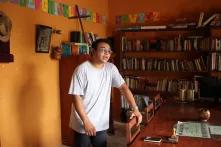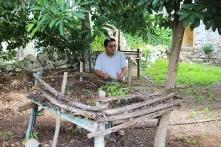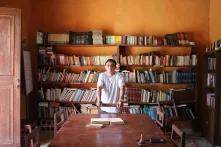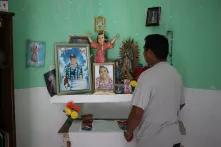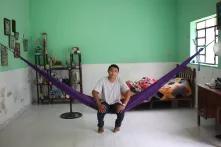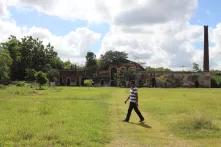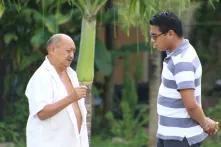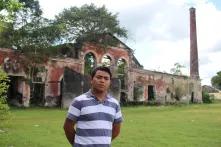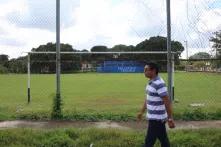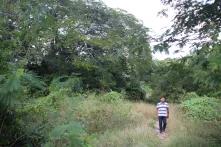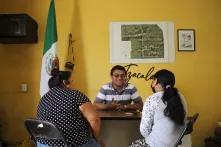Cristian Jesús Sulub Bacab, 21 years old, is one of the youngest municipal commissioners in Mexico; One of the first decisions he made in office was to literally allow women and children into the offices of the San Antonio Tzacalá police station in Mérida, Mexico.

Text and photographs: Javier Escalante Rosado
He had always been told that being young was synonymous with inexperience until he began to look out for the rights of his community; he promotes a democratic policy that places people at its heart
According to tradition, during the last few decades, in this community - as in many in Mexico - the decision-makers were adult men. A vision that Cristian clearly does not share, as he is committed to a more inclusive and democratic style of politics.
Tzacalá is an indigenous community where medical services are practically non-existent, and where there are no higher education institutions, let alone an efficient urban transportation system. It has 850 inhabitants, a large percentage of whom speak Mayan and live in poverty.
Cristian's work consists of attending to all municipal services, from repairing a street or a pavement, keeping the parks clean, getting medicine for sick people, to arranging ambulances for emergency transportation.
It may seem like an easy job, but it is demanding in terms of time and resources, especially when you remember that Cristian is also an intercultural development and management student and has to divide his time between school and public work.
He comes from an underprivileged family, with his father performing various trades, and his mother working as an employee. His origins and adversity have taught him the importance of knowledge in defending human rights.
For this reason, one of the first steps he took was to arrange for the construction of a municipal library that is open every day and available to everyone. This space has served to reaffirm the community's knowledge and know-how.
Breaking adult-centric structures
Cristian represents a new way of working in politics in comparison to the former style of governance in the most remote villages.
“Before, the commissioners were older men who walked the streets with their shirts open, drinking alcohol in the street during the weekends, imposing fear, seeing to their own interests and rarely managing community projects. Do we really deserve to have this type of person in authority?" he asked, while explaining the reasons that led him to run for the position, where he won with more than 50 percent of the votes.
For him, it is not enough just to be the leader of the community, but to serve and democratize all processes; to prevent conflicts from escalating, to deal with education, food and health issues, to "do everything in their power," he added.
“People still doubt young people, they believe that we are here to learn and not to build or contribute, they think that only adults should participate in decision-making spaces, which is clearly wrong," he said.
He argues that this idea has unfortunately been passed on by the same adults to other young people, who mistakenly believe that they are incapable of achieving transformation or change within their community, when the opposite is true.
With his work, he wants to demonstrate that young people can break the stigmas with which they have been burdened for years and that they can have an impact regardless of age.
Fighting authoritarianism
He considers that studying has allowed him to ask himself questions about the abuses committed by the system; these questions took root in the classroom, so he considers it necessary to take education to all corners of the country.
“I have always thought that education does not change things, but it does change the people who are going to change things," he said.
He explained that another of the struggles he faces is machismo, which is why he believes that women should be trained to know their rights and thus denounce any aggression or violence.
In this sense, he is committed to inviting feminists to give talks to women in the parks. "We have to change our mindset through information", he stressed.
We were not born to serve
During the interview, he explained that his work consists of fighting against an authoritarian system, which for generations has made the indigenous populations occupy a space in which they are used to serve others.
“No matter what we do, it seems that fate has our place set apart for us and we have to take it. The fact of being born in a police station limits opportunities in all senses of the word; the most we can aspire to be is a builder, chauffeur, or electrician. I believe this social dynamic must change," he argued.
Finally, he said that he feels very satisfied with what he has achieved, and although it has not been an easy task, he does it with the best of intentions, and for the good of his community.
This photo story was produced with the support of the Global Support for Democracy Unit of the Heinrich-Böll-Stiftung European Union. It is part of the dossier "Youth & democracy in Latin America. Young voices on the rise".
